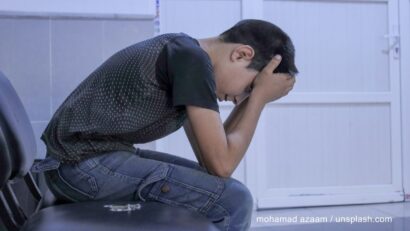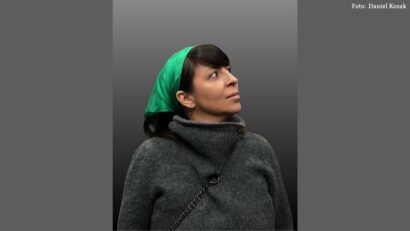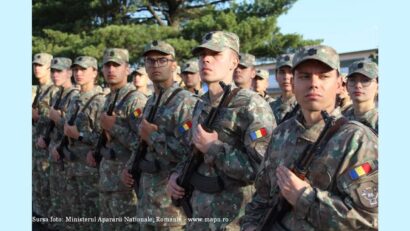An X-ray of education and research in Romania
Diagnostic report on education and research in Romania

Roxana Vasile, 02.07.2025, 14:00
‘Diagnostic report on education and research in Romania. Current achievements and implications for new reforms in the field’. This is the full title of a document recently presented by the interim minister in charge, Daniel David. Briefly titled ʹQX Reportʹ, it proposes an education-research system through which, through appropriate problematizations – questions (Q), the country can face the unknown X of the future.
Starting, therefore, from a current X-ray of the education and research system, Daniel David makes a series of proposals for reforms – some guided by data, others by European/international best practices, and others by the minister’s own reflective analyses. The proposed reforms – says the official – can constitute the relatively stable architecture of the Romanian education and research system in the long term, and can be colored in left/center/right ideologies, depending on the various government programs.
So what is the current situation and what solutions could be found to remedy it? According to the report undertaken by Minister Daniel David, in Romanian pre-university education, education is inefficient, generating graduates with poor quality skills, high school dropout rates and increased functional illiteracy, aspects that become a national security risk. Compulsory pre-university education – preschool-primary-secondary-high school – should transfer, through education, eight key skills through which graduates can effectively integrate into the labor market or continue their studies, become good citizens and people satisfied with their own lives.
For this, one of the solutions would be to rethink school programs in order to teach less, but more relevant things – says Minister Daniel David: ʺI believe that the key element is the curriculum, teaching methods and textbooks. In the curriculum area, we need to teach less, but more relevant and with a greater impact on children’s skills, so I would like the discussion to go in this direction when we talk about classes, subjects, and curricular load, and the number of classes should not exceed the European average. We can no longer be the spearhead in how many subjects and how many classes we put in – I would have accepted this, it was not a problem, if I saw that such a high curricular load produces extraordinarily good graduates, if we had beaten Singapore or Finland in all international ratings! This is not the case Then, especially at the program level, I think we need to get out of the ‘class and lessonʹ logic. This is enshrined in the law, and it is good that 25% of the time allocated to a subject must be spent on something else – that is, on the same content, but in a logic of remedial consolidation and use in everyday life, that is, exactly in the areas where we do very poorly in the PISA testing, and we will have to rethink, practically, all programs in this logic.ʺ
As for the national higher education system, it should aim to train highly qualified human resources who can maintain and develop their skills through lifelong learning. In other words, higher education graduates should not remain prisoners of the knowledge assimilated during their college years, knowledge that over time becomes outdated, but should develop, assimilating new scientific discoveries.
What does Minister Daniel David say? ʺWhat should higher education look like if it worked well? Well, first of all, higher education should generate graduates who have qualification levels 5, 6, 7 and 8 – at the bachelor’s level 5 and 6, at the master’s level 7 and at the doctoral level 8. What should we expect from these graduates? To be able to quickly integrate into the labor market, to have a strong connection with the labor market, especially those in the more vocational areas – theater, engineering, medicine, etc. And those at levels 7 and 8 to change the labor market, to dynamize it, to invent new labor markets. In parallel, in higher education, let’s not forget, the Research-Development-Innovation area also comes in, which should produce that quality research. Is this happening? The truth is that it is not happening at the level of the potential that we have. The truth is that we have too few graduates with higher education and too few doctors in this country. Quality, I mean!”
Romania – the sixth largest country in the European Union in terms of population – produces too little knowledge. Of the knowledge produced, too little is of quality, and of the quality knowledge, too little is of Romanian conception. Why? Because the national Research-Development-Innovation system has an outdated architecture – fragmented, difficult to coordinate, poorly distributed at national level, with overlaps that slow down development and waste resources. Human resources are demotivated and poorly funded. As such, this system does not attract major international resources and is, moreover, vulnerable to ‘brain drain’. And the budget …
Again, Minister Daniel David: ʺIt is already a national shame to keep saying, every year, that the target is 1% of the Gross Domestic Product for Research, plus 1% from the private sector, so we should go towards 2%, and we do not even come close to such values. I can understand that the country is going badly, we still have socio-economic crises, I can understand that. But, if we do not provide the necessary budget plus predictability, research is affected and you cannot do it at a very serious level. You cannot say ʹI am doing the research, I have no more money, suspendʹ … Suspend what? Maybe I have a laboratory in which, I don’t know, I cultivate some plants with a certain type of genetic modification. What do I do with it? In short, the budget is fundamental, and if we do not understand this … It is not that we want more money, we want as much as we have committed and we want that target to be predictable.ʺ
As a result, through the proposed reforms in Research-Development-Innovation, it is desired that the architecture of the national system include diverse actors, with different missions, but which coordinate with each other, in order to generate high-performance cumulative knowledge, without, however, overlapping and consuming funds. Human resources should be better financed, more competitive, including in international rankings, and generate advanced scientific knowledge, with an impact on technological and cultural innovations.
This is, in short, the current X-ray of education and research in Romania. And also in short, for them to develop in step with the times we are going through, there would be a need for truly well-thought-out reforms, thoroughly and constantly applied in the medium and long term, regardless of political color of those who come to power.






























